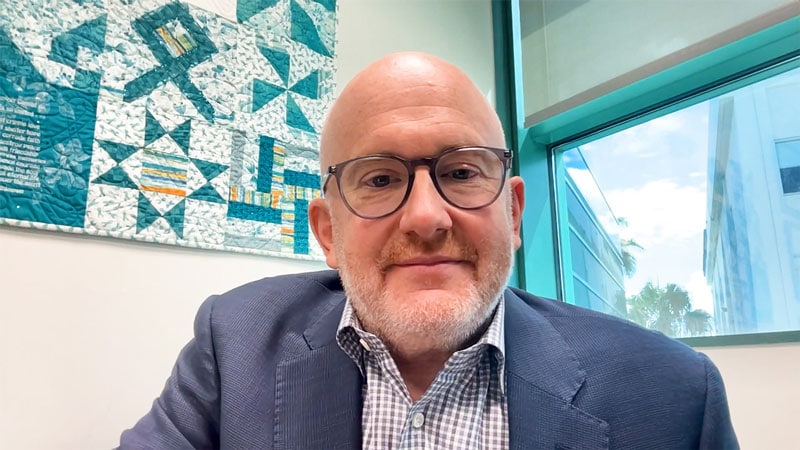This transcript has been edited for clarity.
My name is Brian Slomovitz. I’m a gynecologic oncologist and I look forward to presenting some of the recent trends in ovarian cancer management, what we’re doing to better treat our patients, and some of the latest updates from the ASCO 2025 meeting.
Let’s talk about surgery. Until now, studies haven’t shown a statistical difference between neoadjuvant chemotherapy followed by interval debulking and upfront primary debulking surgery for the management of this disease.
At this year’s ASCO meeting, the TRUST trial was presented. It looked at furthering the role of upfront surgery vs neoadjuvant chemotherapy. This was a well-balanced study conducted at leading surgical centers throughout Europe and the United States, with overall survival as the primary endpoint.
Unfortunately, the trial was negative: There was no improvement in overall survival for patients who underwent primary debulking surgery compared to those who had interval debulking surgery after neoadjuvant chemotherapy. There was a benefit in progression-free survival, but that wasn’t the primary endpoint. We’re looking forward to future research that may further answer this question, but as of now, primary debulking surgery hasn’t demonstrated a survival advantage. We’ll have to see how this continues to evolve.
Turning to primary systemic therapy, there have been several recent studies looking at the addition of checkpoint inhibitors to standard chemotherapy — with or without bevacizumab and PARP inhibitors — to determine whether this could improve outcomes.
One of the key studies presented at this year’s meeting was the FIRST trial. It was a well-designed trial, with an appropriate control arm using standard therapies and adding immunotherapy in the experimental arm. This study did show a statistically significant improvement. However, when we talk about clinically meaningful, are we going to put that into our practice? The difference was only 1 month. Although this was statistically significant, it is unclear whether this finding will change clinical practice at this point.
In the recurrent setting, a great unmet need is better treatment options for our patients with platinum-resistant disease. One recent advance is mirvetuximab, an antibody-drug conjugate targeting the folate receptor alpha. This therapy demonstrated a positive overall survival benefit, but it applies only to a subset of patients who overexpress this receptor protein.
Also at this year’s ASCO meeting, results from the ROSELLA trial were presented. All patients received nab-paclitaxel, an active agent for recurrent ovarian cancer, and the experimental arm included the addition of relacorilant, a glucocorticoid receptor. The study showed a statistically significant improvement in progression-free survival among patients treated with relacorilant.
There was also a clinically meaningful trend toward improved overall survival associated with the addition of relacorilant. Although the data are not yet mature, we may see this combination become increasingly significant over time. The findings were published on the same day in The Lancet. If the sponsors move forward with a regulatory strategy, this could become part of the standard of care — potentially making a real, day-to-day difference for our patients.
Another exciting development in the management of recurrent disease is IL-2 gene therapy. At this meeting, Dr Premal Thaker presented results from the OVATION 2 trial, which showed a strong response rate and a promising signal in patients with ovarian cancer. I think the logical next step would be a phase 3 registrational trial to determine whether this IL-2 gene therapy can ultimately be incorporated into the standard of care for our patients.
We’re making significant strides in the management of ovarian cancer, and I believe ongoing and future studies will continue to improve outcomes and help our patients live longer with a good quality of life.
